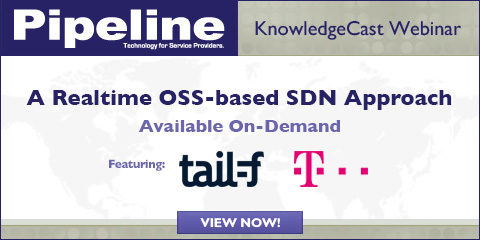The Big Data Advantage
By: Becky Bracken

Not too long ago, customers were willing to pay Ma Bell a premium service charge to keep their phone number unlisted. You didn’t necessarily have to be in the witness protection program to keep your name, number and address private.
To say times have changed would be a vast understatement.
These days customers really let it all hang out. They Instagram every meal, Facebook every personal detail about themselves and “check in” everywhere from the local taco shop to their vacation theme-park destination.
The numbers say it all, really. Last fall Facebook proclaimed that its users have clicked the “like” button more than one trillion times since that feature was activated in February 2009 and created more than 17 billion location-tagged posts, including check-ins, since August 2010. The customer information generated by this TMI tsunami is a Big Data gold mine, and communications service providers (CSPs) are in a prime position to pounce on the opportunity.
Today’s digital consumers are far more than just chronic oversharers. The average social-media jockey has grown up soaking in a brine of the most sophisticated marketing messaging the world has ever known, and is savvy enough to realize that advertisers are clamoring to learn more about consumers just so they can sell them more stuff. It’s not that modern consumers mind being part of various target demographics—they just want to get something out of the bargain.
“According to the World Economic Forum and Boston Consulting Group, customers need to be engaged in understanding how their personal data is used and how value is created,” wrote Dr. Andy Tiller, VP of product marketing for AsiaInfo-Linkage, in a recent white paper titled “Monetizing Customer Knowledge Without Upsetting the Customer.” “In other words there should not only be clear incentives to encourage customers to opt in, but they also need to feel in control ... Operators have a tremendous opportunity if they can unlock the value of their customer knowledge, but they need to be sensitive towards their customers’ concerns about how their personal information is used for marketing purposes,” ensuring that those customers have a good mobile-marketing experience once they’ve opted in.Earlier this year Amdocs released the results of a Big Data survey of nearly 4,000 customers in 13 countries that attempted to gauge customers’ feelings about privacy, which appear to be less stringent than before. In fact, 64 percent of 18- to 24-year-olds share photos, 70 percent of the 25-to-34 demographic share videos and a staggering 65 percent of these two age groups “don’t care about privacy,” according to Amdocs.
Administered by Coleman Parkes Research in April, the survey sought to give CSPs actionable insights on how to enter into an agreement with customers to access
their private user data. A delicate negotiation, to say the least.
“The results of this survey indicate that fears about unwillingness on the part of consumers to share personal data have been overblown in the industry,” said Coleman
Parkes cofounder Ian Parkes. With the additional ability to share this information with third parties, customer data has the potential to become a new form of industry currency.”





















